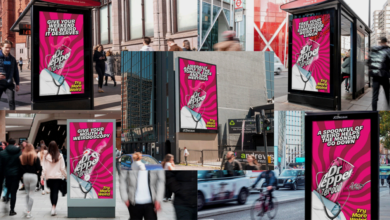Mobile Marketing: Reaching Customers on the Go 2023

The advertising plan of any company now includes mobile marketing. Reaching clients on the road is more important than ever because of the development of smartphones and improved internet connectivity. Mobile marketing will continue to develop in 2023, giving companies fresh opportunities to engage with their target markets. The latest developments in mobile marketing are examined in this article, enabling companies to successfully connect with clients who are on the go.
Mobile Marketing’s Power
Mobile marketing offers businesses in today’s fast-paced society when practically everyone has a smartphone, a fantastic opportunity to communicate with their customers. Our lifestyles have expanded to include mobile gadgets, which give us rapid access to information, communication, and entertainment. Businesses may take advantage of this ongoing relationship by using effective mobile marketing methods to engage their target market and increase conversion rates.
Recognizing the Mobile Environment
Understanding the mobile landscape is essential before delving into the strategies and tactics. There are many different types of mobile devices, including smartphones, tablets, and wearable technology. The screen sizes, operating systems, and functionality of these devices vary. To provide a consistent user experience across various devices, businesses must take into account these criteria when creating their mobile marketing strategies.
Read More: Email Marketing 101: Best Practices for Effective Campaigns 2023
Achieving the Best Mobile Experience with Responsive Web Design
Having a responsive website design is one of the core components of mobile marketing. A responsive website adjusts to various screen sizes and orientations to give users the best possible browsing experience. Businesses can guarantee that their website looks and performs flawlessly on mobile devices by employing responsive web design, which also lowers bounce rates and increases user engagement.
Enhancing Customer Engagement with Mobile Apps
Businesses may engage and communicate with their customers effectively with mobile apps. An app gives users their own area on their devices, allowing for more simplified interactions and customized experiences. Businesses may increase client loyalty and conversion rates by offering push notifications, exclusive discounts, personalized recommendations, and convenient transactions through a well-designed and feature-rich app.
SMS Marketing
Direct Communication at Customers’ Fingertips
SMS marketing is still a successful method for contacting clients directly through their mobile phones. Time-sensitive discounts, appointment reminders, order status updates, and more may all be sent via short, snappy texts. Businesses can use SMS marketing to strengthen customer connections and increase conversions by acquiring consumers’ agreements and sending pertinent and helpful material.
Location-Based Marketing
Aiming Local Clientele
Location-based marketing takes advantage of the GPS capabilities of mobile devices to send messages and offers that are specifically tailored to a user’s location. Businesses can use this tactic to offer tailored advertisements to clients who are close to their physical establishments, boosting foot traffic and revenue. Businesses can also learn more about the tastes and behaviors of their consumers thanks to location-based marketing, which helps them to create more specialized and pertinent marketing campaigns.
Mobile Social Media Platforms Marketing
Mobile devices are the primary means by which people access social media networks, making them an essential part of any mobile marketing plan. Popular social media sites like Facebook, Instagram, Twitter, and LinkedIn may be used by businesses to engage with their target market, increase brand recognition, and increase website traffic. Businesses can use social media for mobile marketing success by producing interesting and sharing content, interacting with consumers, and running targeted ads.
Mobile Marketing
Attracting Viewers While They’re on the Go
When customers are using their mobile devices to browse applications, websites, or social media, mobile advertising gives businesses the chance to grab their attention. Businesses may build aesthetically beautiful and compelling commercials that promote brand awareness and increase conversions using a variety of ad formats, including banner ads, interstitial ads, native ads, and video ads. Platforms for mobile advertising also offer precise targeting possibilities, enabling organizations to precisely target their target market.
Read More: The Future of Advanced Digital Marketing: Trends to Watch 2023
Using Mobile Devices for Audience Engagement with Video

In recent years, video marketing has become incredibly popular and has taken the lead in mobile marketing. Videos that are under two minutes long but nonetheless entertaining can effectively convey marketing messages to viewers. Businesses have a way to make and share videos that appeal to their target audience on sites like YouTube, TikTok, and Instagram Reels. Businesses may use video marketing to boost brand engagement and enhance conversions by combining storytelling, humor, and creativity.
Mobile Payments

Simplifying the Shopping Experience
Mobile devices’ capabilities increase as they get more advanced. Users may now complete safe and practical transactions directly from their cellphones thanks to the growing popularity of mobile payment systems. Businesses can incorporate mobile payment alternatives into their applications or websites to give clients a seamless checkout process. Businesses may simplify the purchasing process and increase customer happiness by providing a variety of payment options and maintaining data security.
Mobile Channels for Influencer Marketing
Businesses may now effectively use the popularity and influence of well-known individuals on social media by using influencer marketing. Businesses may boost brand recognition, reach new audiences, and boost engagement by partnering with influencers who have a sizable following on mobile platforms. Businesses can improve their mobile marketing efforts by teaming up with influencers who share the same values as their brand and the audience they are trying to reach.
Optimizing for Mobile Search using Mobile SEO
To preserve their online visibility as mobile usage increases, firms must optimize their websites for mobile search. Mobile SEO uses a variety of strategies, including enhancing website navigation, structured data markup, page load speed optimization, and content creation for mobile devices. Businesses can increase the efficiency of their mobile marketing by concentrating on mobile SEO best practices to make sure that their website performs well in mobile search results, generating organic traffic.
Key Metrics to Consider When Measuring the Success of Mobile Marketing

Businesses must monitor and measure important data in order to assess the success of mobile marketing efforts. These indicators offer perceptions of user behavior, campaign effectiveness, and ROI. App downloads, app engagement, click-through rates, conversion rates, customer acquisition cost, and client lifetime value are crucial metrics to take into account. Businesses can find areas for development and optimize their mobile marketing strategy for better results by examining these KPIs.
Mobile Marketing’s Future
The future potential for mobile marketing is tremendous as technology develops further. Mobile augmented reality (AR) and virtual reality (VR) experiences, which provide immersive and interactive brand experiences, are anticipated to become more common. With users increasingly using voice commands for daily tasks, voice search, and voice-activated assistants are also anticipated to play a key role in mobile marketing. Businesses must embrace this cutting-edge technology and keep up with current market trends if they want to stay ahead in the dynamic world of mobile marketing.
Conclusion
Businesses must adapt and innovate in the dynamic world of mobile marketing to successfully reach clients on the go. Businesses may develop effective mobile marketing campaigns by comprehending the mobile landscape, utilizing responsive site design, adopting mobile apps and SMS marketing, utilizing location-based marketing, and incorporating social media, video marketing, and mobile payments. Long-term success will be ensured by personalization, automation, and continual measurement of important parameters. Businesses that remain adaptable and seize new opportunities will prosper in reaching and engaging clients on the go in the ever-changing technological world.
FAQs
How does mobile marketing work?
The strategies and tactics used by organizations to connect with and engage with clients via mobile devices like smartphones and tablets are referred to as mobile marketing.
In 2023, how significant will mobile marketing be?
Due to the growing number of smartphone users and their dependency on mobile devices for information, communication, and shopping in 2023, mobile marketing will be more crucial than ever.
Which mobile marketing techniques work best?
Responsive site design, mobile apps, SMS marketing, location-based marketing, social media marketing, mobile advertising, video marketing, and mobile payments are some examples of efficient mobile marketing techniques.
How can companies assess the effectiveness of their mobile marketing initiatives?
Businesses can monitor indicators like app downloads, app engagement, click-through rates, conversion rates, customer acquisition cost, and customer lifetime value to assess the effectiveness of their mobile marketing strategies.
What does mobile marketing’s future hold?
In order to provide customers with more immersive and customized experiences, the future of mobile marketing is likely to embrace technologies like augmented reality, virtual reality, voice search, and voice-activated assistants.












2 Comments